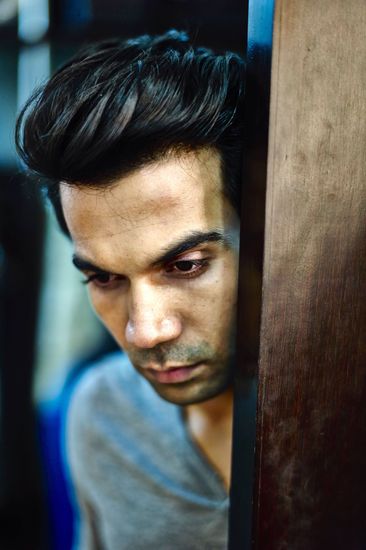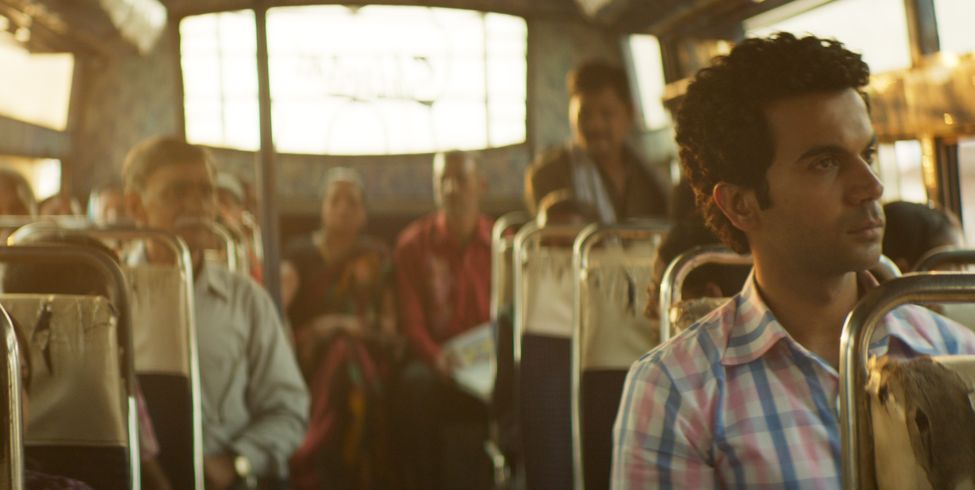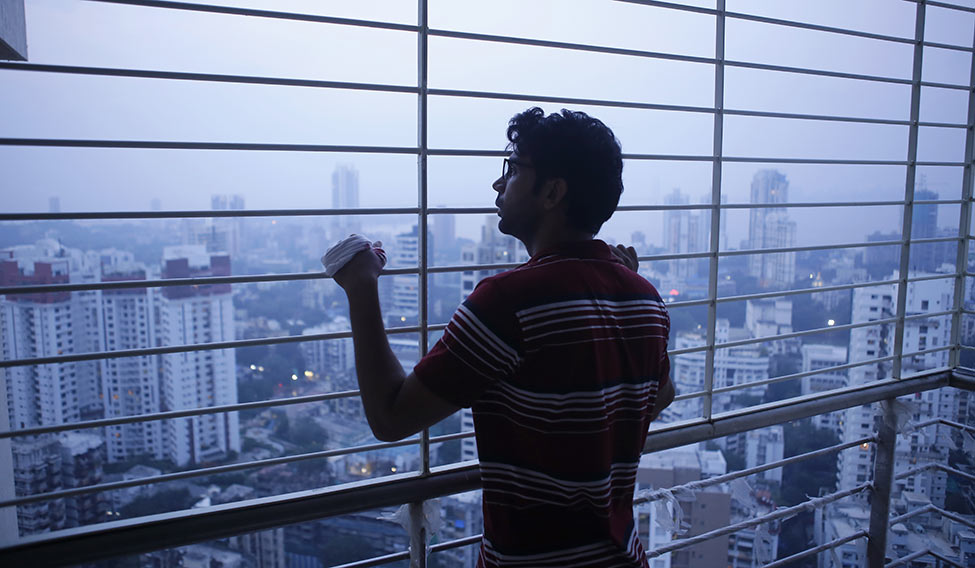The film Trapped is not easy to watch. There are times when you feel nauseated, and claustrophobia grips you. But you still watch to see how Shaurya, wonderfully portrayed by Rajkummar Rao, survives when he unwittingly locks himself in a flat in an underpopulated building, with no one to hear his cries for help.
As a kid, Rao considered all heroes to be indestructible. “When I was growing up in Gurgaon, I used to watch only Hindi films set in a fantasy-world scenario. I remember watching Agneepath and howling, ‘How can Amitabh Bachchan die? He is Amitabh Bachchan, he can never die,’” says Rao, laughing. For him, actors were creatures of a different planet. “They were superheroes. It was a different world. It was surreal,” he says.
 Character actor: For Rao, the length of a role doesn’t matter, its importance in the film does.
Character actor: For Rao, the length of a role doesn’t matter, its importance in the film does.
Ironically, now that he is an actor, Rao wants to be closer to reality. When director Vikramaditya Motwane, who calls him a “reluctant hero”, shared the idea of Trapped, Rao grabbed it. He was the first choice because “nobody else could have brought the vulnerability in Shaurya as he did,” says Motwane.
Rao lived the character during the making of the film. He even went on a ‘carrots and coffee’ diet to look like a starving man. “Perhaps later in my career, I might not get an opportunity to live on just black coffee and carrots for a fortnight. As an actor, I wanted to experience this phase,” says Rao. Trapped was challenging, both physically and mentally, but he thoroughly enjoyed it.
Even if larger-than-life heroes still rule at the box-office and fit the larger definition of the conventional film formula, “real” is conventional for Rao. “My characters are the most conventional,” he says. “They are people who you see in and around you, existing in different strata of society.”
Whether it was Shahid, based on slain lawyer Shahid Azmi, which got Rao the National Award, or Citylights that told the story of a migrant, each of his films tells a realistic story. So too his upcoming films—Amit V. Masurkar’s Newton is a black-comedy with political undertones about a clerk who is placed on election duty in a conflict-ridden area of Chhattisgarh, and Hansal Mehta’s Omerta examines the very opposite end of the axis of politics and radicalism that Shahid explored.
So, is it a conscious decision? “If people think that I am taking a non-conventional route, I am happy in that space. It is not a conscious effort,” says Rao. “I just do things that excite me as an actor. And if Shahid, Newton, Trapped and Omerta fall into that category, I am happy.”
Rao’s stint in theatre in Delhi and the exposure he got from watching international films at Film and Television Institute of India in Pune taught him that there is a lot more to an actor. “I was in awe of legendary actors like Daniel Day-Lewis and Robert De Niro. I realised that while we have great actors in India, there are these actors and films that are extremely, extremely real,” he says. “It is meditative if you take it seriously. You can go really deep into it.”
Actors like Naseeruddin Shah and Om Puri, who have made a name for themselves in parallel cinema, have found it difficult to establish themselves in the commercial space. “But they are legends,” says Rao. “When you talk about Indian cinema 100 years from now, these are the actors whose names would figure in the list of 10 best actors.”
However, he is trying to “not be blocked in one kind of genre”. “That is the reason there is Bareilly Ki Barfi and Behen Hogi Teri [both releasing this year], which in the conventional way are slightly commercial films rather than probably a Newton or an Omerta. But even these films have a story that encouraged me,” says Rao, who does get commercial film offers, but he chooses only those roles that he thinks would satiate the actor in him.
 A stills from Newton
A stills from Newton
Masurkar, who met Rao for the first time during the shooting of a promotional video for Love, Sex aur Dhokha, was impressed by his sincerity and the effort he puts in bringing depth to the character. “For Newton, he came up with ideas that added to the film,” he says. “And he doesn’t do it to prove that he is different; he does it because his level of interest in films is high”
The 32-year-old actor didn’t hesitate from doing films like Queen and Hamari Adhuri Kahaani, in which he had small yet significant roles to play. “When I read a script, I see the story and how exciting it is, but at the same time I see the character I have to do. I see the scope I have. If the film can be made even if you take out my part, I can’t do it,” he says.
In Aligarh, which came out last year, Rao played a small role that could have been easily overshadowed by Manoj Bajpayee’s thundering performance as a gay professor, Shrinivas Ramchandra Siras. But Rao’s interpretation of Deepu added fresh dimensions to the film. “His world was more energetic and colourful than Siras’s muted environment, yet it was similarly claustrophobic,” says director Hansal Mehta, who calls Rao his muse. Mehta wasn’t convinced about Rao initially when director-producer Anurag Kashyap and casting director Mukesh Chhabra suggested his name for Shahid. But now, Shahid will always remain his most special film, “made even more special by the beginning of my collaboration with him,” says Mehta.
Rao is excited about playing the lead role in so many interesting films, but if given a chance today to act in Ram Gopal Varma’s two-decade-old cult film Satya, he would still prefer to do the role of Bhiku Mhatre, a side character that stole the show, instead of the central one.








